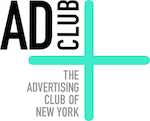NCAA Obtains Injunction Over "March Madness" and "Final Four" Trademarks

By: Brooke Erdos Singer, Partner
Advertising, Marketing & Promotions
Louis DiLorenzo, Associate
Advertising, Marketing & Promotions
The U.S. District Court for the Southern District of Indiana sided with the National Collegiate Athletic Association (NCAA) and awarded a permanent injunction against game developer Kizzang Inc. (Kizzang) over a mobile and online game that infringed the NCAA’s trademarks “March Madness” and “Final Four.”
Background
The NCAA administers inter-collegiate sports across the United States and is best known for the Division I Men’s Basketball Tournament, held in March each year. The NCAA owns a number of trademarks related to that tournament, most prominently “March Madness,” “Final Four,” “Elite Eight” and “Sweet Sixteen,” and does not permit using the NCAA’s name, trademarks or tickets in connection with marketing or promotional activities without prior approval.
Kizzang developed a mobile and online game under the names “Final Three” and “April Madness,” whereby users could enter their predictions about the outcomes of individual games in the Division I Men’s Basketball Tournament. Notwithstanding warnings from the NCAA, Kizzang continued offering the game, eventually filing for federal trademark registrations for the marks “Final Three” and “April Madness.”
In response, the NCAA filed oppositions with the U.S. Patent and Trademark office in February 2017, and soon thereafter filed suit in federal court alleging that “Final Three” and “April Madness” were confusingly similar to the NCAA’s marks “Final Four” and “March Madness.”
The Ruling
The court found Kizzang in default in November 2017, and in January 2018, issued a permanent injunction against Kizzang, finding that the phrases “April Madness” and “Final Three” were similar to the NCAA’s marks and had a strong potential to cause confusion.
In light of the obvious similarity to the NCAA’s marks and Kizzang’s use in connection with the Division I Men’s Basketball Tournament, the court also found that Kizzang’s use rose to the level of willful infringement, and therefore found Kizzang liable for the NCAA’s attorneys’ fees.
BOTTOM LINE
The NCAA has a history of diligently monitoring “Final Four,” “March Madness” and other trademarks connected to the Division I Men’s Basketball Tournament, and will be quick to act on unauthorized uses, especially when used to market or promote third-party products. Although trademarks associated with popular events (including the Super Bowl, Oscars and Olympics) can be a compelling way to connect with consumers, brands and agencies should consult counsel before seeking to leverage the trademarks of any entity to avoid possible and costly litigation.
